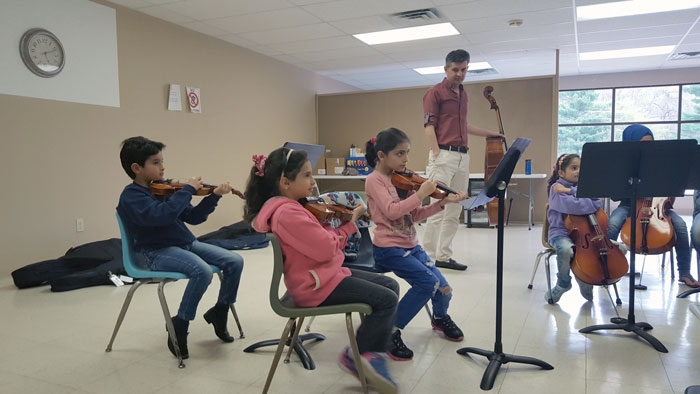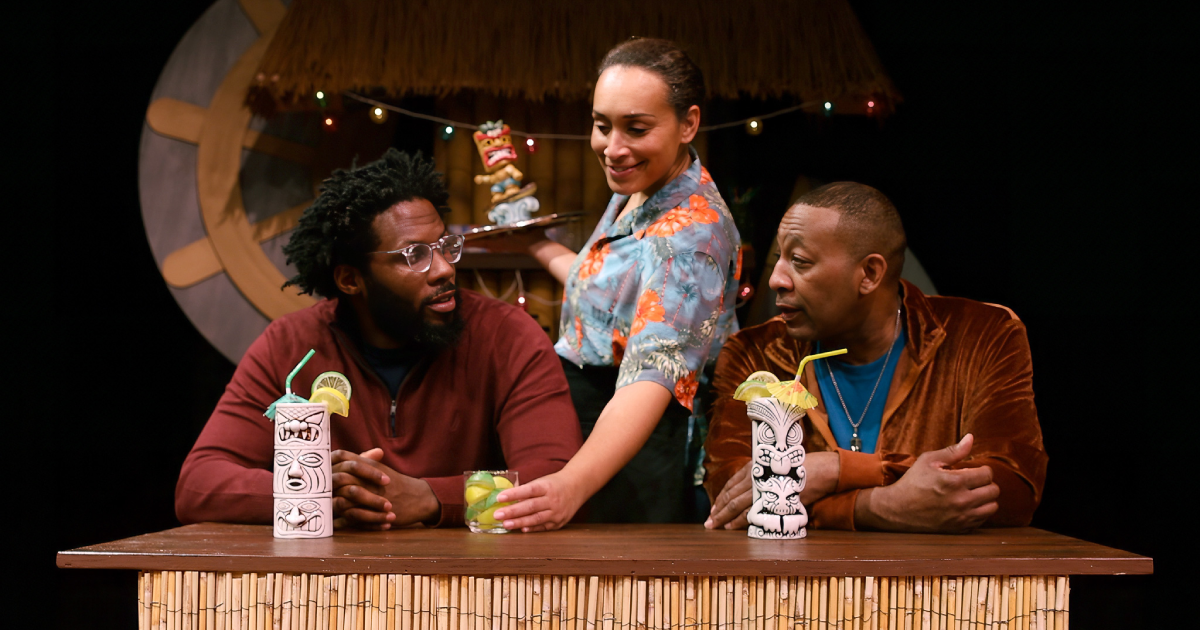KALAMAZOO — Cellos and violins have become instrumental in the creation of a safe harbor for the children of refugees who have relocated here from countries like Syria, Egypt and Lebanon.
Since April, about 19 of these children have been meeting several times each week inside a room at the Suzuki Academy to receive musical instruction from the coordinators of “Orchestra Rouh.” But the experience goes well beyond notes on a page.
Rouh means both “hope” and “spirit” in Arabic, and the program is designed to nurture the emotional well-being of children through music instruction, led by teachers who are bilingual in English and Arabic, and including music from Arabic traditions.
“Most of the kids when they come here don’t know English. When they start school they can’t communicate or talk because they don’t know any English words,” said Ahmed Tofiq, a founder of Orchestra Rouh and one of its musical instructors. “Me and my wife were thinking why not make an orchestra for them, because music is a universal language.”
For many of these children, having access to a place where they can be themselves and participate in an activity together gives them a sense of normalcy and belonging. Tofiq said the opportunities for them to fully participate in school-related music classes or extracurricular programs are limited because of language barriers.
“They can’t sing because they don’t understand English and the teachers don’t understand Arabic,” Tofiq said.
Orchestra Rouh is offered under the umbrella of the Kalamazoo Symphony Orchestra’s Education Programs in partnership with the Suzuki Academy of Kalamazoo. The program was founded and is led by Tofiq, a violinist, cellist Bashdar Sdiq and Arabic instructor Hend Ezzat Hegab, who is also Tofiq’s wife.
The couple has been involved with refugee relief work in Kalamazoo for the past year and recognized the immediate need for positive social/learning activities to help reduce isolation for families and speed up children’s English language acquisition.
Tofiq and Sdiq, who are from Iraqi Kurdistan, recently completed master’s degrees in music at Western Michigan University, and have previously taught and toured with the Youth Orchestra of Iraq.
Orchestra Rouh organizers are intimately aware of the many basic services refugee families in Kalamazoo need, and they see access to the arts as a way to address some of those needs.
“Obviously, we’re not trained therapists and we know that these folks have been through a lot of difficulty with resettling and learning a new language, and music can address a lot of those social and emotional needs,” said Elizabeth Youker, vice president of education and community partnership for the KSO. “Music can bring kids together in a fun and productive activity that will create a brighter outlook and open their minds to new experiences.”
Tofiq and Sdiq said feelings of isolation and frustration are not uncommon among their students.
“Sometimes these kids are mad or sad and they go through bouts of rough times,” Sdiq said. “Sometimes we have a group teaching another group and they learn how to play for each other and to each other. They learn trust and respect and if they make a mistake, they know they can follow a friend.”
Jacob Olbrot, executive director of the Suzuki Academy, said he is hoping to grow the program. On June 10, Orchestra Rouh members will join with Suzuki students in a performance.
“This was not meant to be Syrian-specific,” Olbrot said of Orchestra Rouh. “Our dream is to grow it into a wider refugee program.”
Based on what she’s already seen, Youker said she thinks Orchestra Rouh is helping the children to adjust to their new community.
“We want to use this program to bring kids together from different cultural backgrounds in a way that honors everyone,” Youker said.





